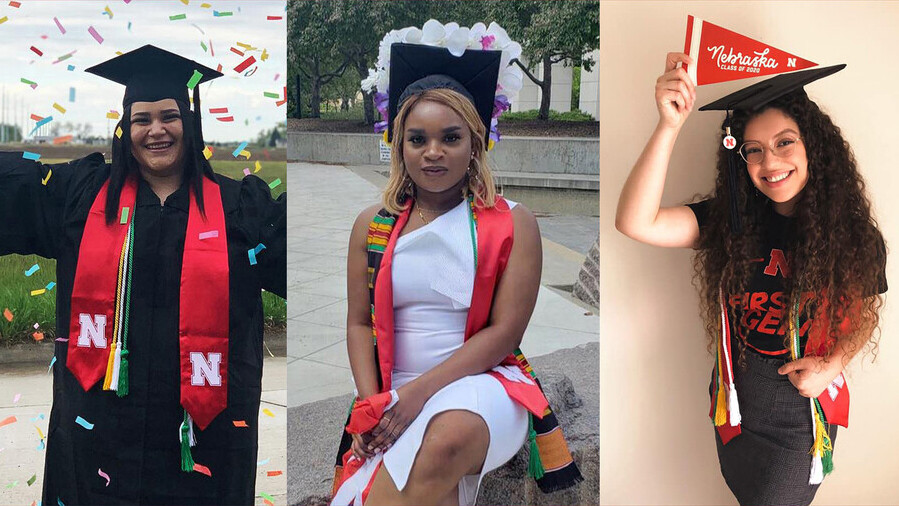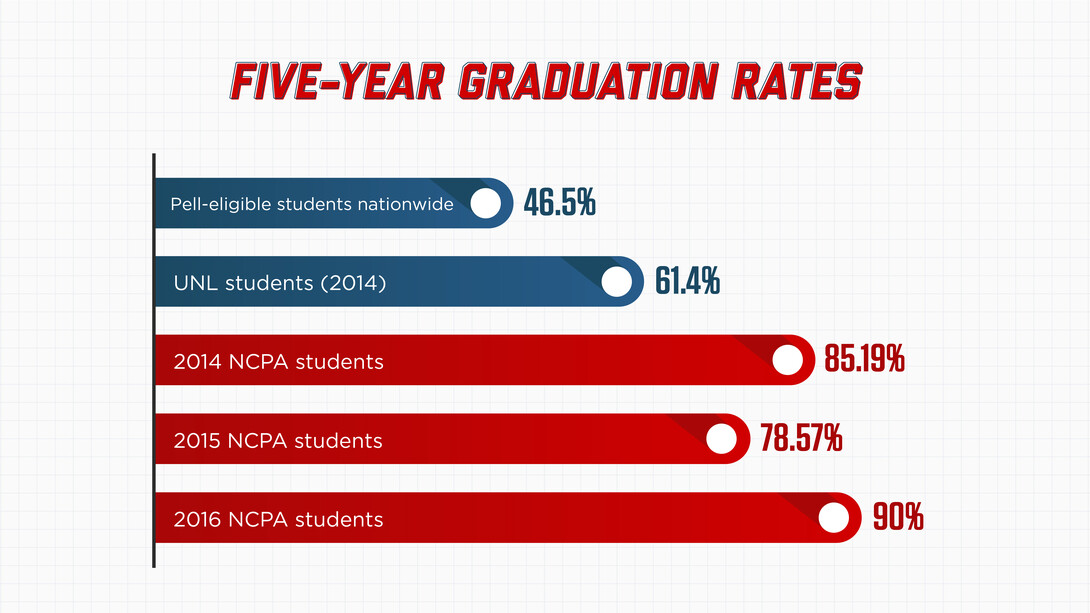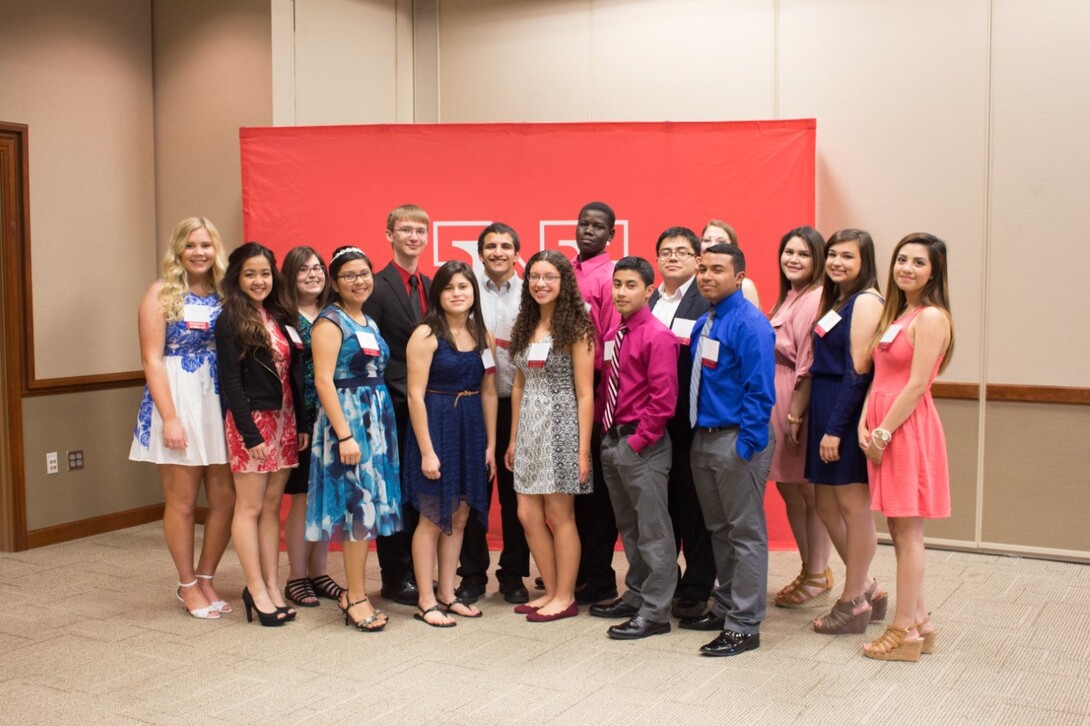
Guadalupe Esquivel didn’t have the pomp and circumstance of an in-person commencement ceremony to mark earning her bachelor’s degree from the University of Nebraska–Lincoln this past May.
As the first in her family to go to college, however, receiving her diploma in the mail was still worth all the celebration in the world.
“Neither of my parents were able to have any schooling past the third grade, so they really pushed education in any sense that I could get it. It’s kind of like a family degree at this point,” said Esquivel, who graduated with majors in sociology, Spanish and Latin American Studies and now serves as a digital communications manager at Nebraska Civic Engagement Table. “There’s a huge sense of pride there, as well as security and peace of mind that I’ll be able to carry with me.”
For Esquivel, getting a college education was a journey that began even before high school. As an eighth grader in Grand Island, she was one of 50 students throughout the state accepted into the university’s Nebraska College Preparatory Academy. The program selects an annual cohort of low-income, first-generation, high-achieving members to receive mentorship, leadership training and a financial aid package that pays the full costs of attending the University of Nebraska–Lincoln once the students graduate from high school.
Ninety percent of the NCPA’s class of 2016 students, Esquivel included, are on track to graduate in five years. A new record for the organization, the number also surpasses the five-year graduation rates for both the university as a whole and Pell Grant-eligible students nationwide.
“When I see these graduation rates, it’s validation that the work we’re doing is making a difference,” said Moi Padilla, director of the program. “I’m just very happy for the families that we serve, and I feel really humbled to be part of their journey.”

Breaking down barriers
Though access to four-year institutions has improved significantly over the past several decades, low-income students still fail to complete college at a disproportionate rate.
“When you look at graduation rates for first-generation students from low socioeconomic backgrounds across the country, only 11% graduate from college, compared with 56% of their wealthier peers. There’s a significant gap there, and when you factor in racial and ethnic groups, that gap grows,” Padilla said.
The NCPA was founded in 2006 with the intent of changing that statistic.
“Our program is innovative because we create a holistic support system for students,” Padilla said. “We have peer-mentor groups, wellness counselors, trained high school teachers and academic counselors. We host parent workshops and bring scholars to campus each summer for academic camps. By the time they get to Nebraska, they’ve been equipped throughout high school on how to navigate challenges. They also still have a connection with the NCPA while they’re here by participating in the Trenchard Foundation Institute of Excellence, our college retention program — so if there is an issue or challenge, they can come to us.
“When you see it all work together, you think, ‘No wonder it works.’ They’re getting the support they need, and to me, that’s equity. We’re making sure that students have what they need to be successful, and if you take those barriers out of the way for them, they can rise up and achieve their potential.”

According to Esquivel, joining the NCPA was a pivotal part of both preparing for college and reaching the finish line once she got there.
“Before being a part of this program, I didn’t know anybody who had gone to college,” Esquivel said. “So even though I knew that I wanted to pursue higher education, I had no idea how that would work or who I would be able to talk to about that.
“The financial support is absolutely extraordinary in and of itself, and the relationships that the NCPA staff has built with us as students are priceless. I feel like the staff has been one of my biggest support systems for over eight years now, even with things that are not directly related to the program or education. They’ve always been in my corner. It’s really a one-in-a-million program that has forever impacted the lives of so many students here in Nebraska, and I’m very, very grateful for it.”
A $300,000 grant from the Peter Kiewit Foundation, gifted to the NCPA in 2019, is helping the program serve its increasingly diverse group of students. In the future, Padilla also hopes to expand the size of each year’s cohort.
“As a land-grant institution, a large part of our mission is educating and graduating students from Nebraska. The NCPA is a product of that commitment,” Padilla said. “I want us to become a national leader in helping first-generation and low-income students achieve academic and personal success.”







